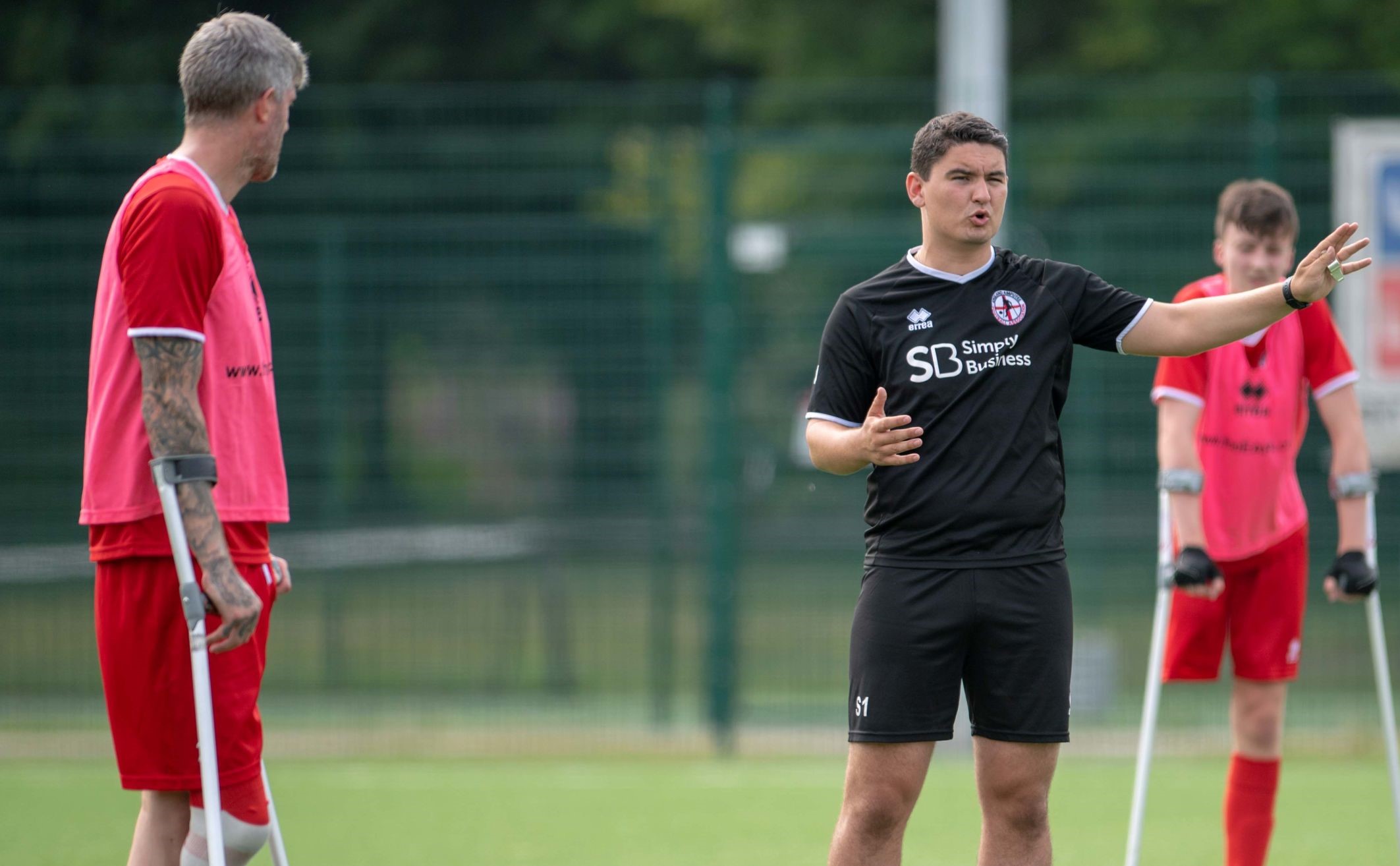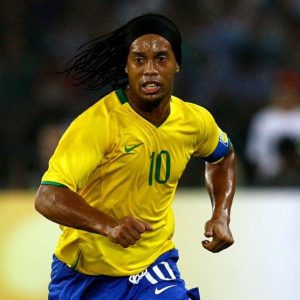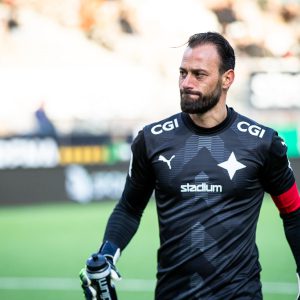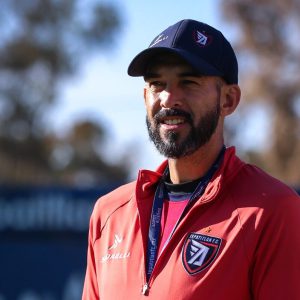

Overcoming challenges in Soccer! Interview with Owen Coyle Junior
Do you fancy Gareth Southgate’s job? “There’s not many Scotsmen managing England teams, so it would certainly be interesting,” said Owen Coyle Junior, a wry smile cast across his face. It would certainly be an atypical career move, but thus far the manager of the England National Amputee Team’s story has defied convention.
For one so young, Owen’s shoulders carry an enormous weight of responsibility. Aged just 23, he oversees a staff of over 20 people in the amputee set-up, as well as taking charge of the meat and drink of the role, the training and the scouting. He also owns and runs his own company, C02 Sports Management, a bespoke service which, in Owen’s own words, “looks after any sportsperson or athlete in a whole range of different areas, whether that be contractual support or negotiations in moving clubs. We’re looking at liaison support within the clubs and the leagues our players are performing in. We’ve got legal support, financial support. I could go on all day.”
You get the impression from Owen that if he could go on all day, he would. Unfortunately, we were limited to 45 minutes. His enthusiasm for his work is boundless, and he is an excellent ambassador for amputee football. He explained a little about how the game is played and how it differs from non-disability football. “The game is 7v7. Games last 50 minutes – it’s two 25-minute periods. In each half you’re allowed one timeout.”
“Anybody who plays outfield, they play on crutches and they’ve only got one leg. If they do have a stump – so a left or a right stump which is part of a residual limb – that can’t be used at any point when playing; so it can’t be used to block shots, it can’t be used to gain any form of advantage. It’s only your dominant leg that you can play on.”
“Goalkeepers, however, they’ve got two working legs, but they’ve got an upper-body amputee limb deficiency. So again, they can only use their one dominant arm. So if they’ve got a residual limb, that’s got to be tucked into their jersey.”
“On top of that there’s some rule differences,” Own continued. “The goalkeeper’s not allowed to leave the area, the reason being that some goalkeepers, particularly off their two working legs, are fantastic footballers. Our goalkeeper, for example, played semi-pro football up to the age of 27. If they were to come out with their two working legs, it would be a huge advantage given to the goalkeepers in the sport.”
Quite a radically different game from mainstream football, you might think? “There’s a lot of similarities in terms of coaching, in terms of implementing tactics, understanding the game.”
Like thousands of other coaches around the world, Owen has been unable to spend much time with his players over the past few months. On top of this, the Amputee European Championship has been suspended until 2021. “I think first and foremost, you just accept what it is and what’s happened and move forward with it. You can get too caught up in thinking ‘well, this could have been here, this could have been there’.”
“We’ve got a lot of young players coming through the system, there’s some phenomenal young talent and it [the one-year wait] gives us a chance to have another year for their development.” It’s an optimistic attitude, the kind that Owen carries with him in all areas of his work.
Most members of the England National Amputee Team are volunteers, but Owen tells us that in countries like Poland, Russia and Turkey amputee footballers are full-time professionals. In England, we haven’t quite reached that level, but the trajectory of the game is certainly a positive one. “We’ve got 110 players currently playing in the adult league. Back in 2010, we probably had around 20 players playing in the country. So to see that growth of players now playing the sport is phenomenal.”
How similar are the training methods Owen employees in comparison to those used in mainstream football? “We always consider the size of the area we’re working in. So if I was to coach professional mainstream players, we’d probably play over a larger area, firstly because its 11v11 and secondly because we’ve actually got an opportunity to restrict the size of it and make it relative to the game.”
“Aside from that, we also bring in the laws of the game to make it realistic where possible within training sessions. But a lot of our methods are very similar. My expectations are high. My expectations working with amputee players would be no different if I was to coach the Manchester City first-team.”
Discussing tactics, Owen tells us “at the weekend, a lot of our work is tactical, very similar in some ways to any national mainstream team Gareth Southgate will go and choose the best players and those players come in and he works with them tactically. He isn’t teaching Raheem Sterling how to take a first-touch.”
Asked whether he prefers getting results or seeing his players improve, his answer was emphatic: “getting results on the pitch.” “Improving players is such a huge job for the coach,” he expands, “and in terms of the sustainability of the team and the longevity of the team, it’s vital. I appreciate that I’m not going to be in this role forever.”
“A big part of it [Owen’s career] is legacy.” Owen’s first steps in the world of management have certainly set him up to leave a fantastic legacy.
More at www.hub-soccer.com
Follow us on Facebook!
Categories
Latest Courses
-
9 Lessons
-
1 Lesson
-
6 Lessons
You May Also Like
- Blog
- August 1, 2022
- Blog
- June 3, 2022
- Blog
- May 27, 2022
Developed by Brandit Digital Media Services.





